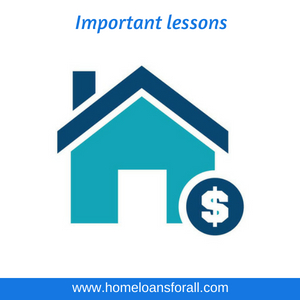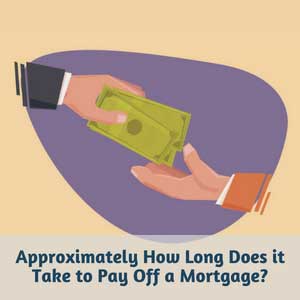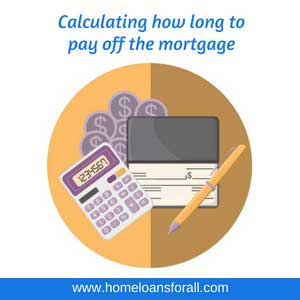by Mike Plambeck
The Best Guide on How to Apply For a Home Loan
 When Cecile wanted to buy a home for her first time in Canada, she faced a big dilemma. Should she get a small house in Nepean, her favorite area in West Ottawa; or buy a cheap but spacious home in Thunder Bay, Ontario? Still, she was considering one of the safest places in Toronto- Forest Hill South. Cecile spent too much time juggling myriad options and in the process, another buyer took the Toronto house she wanted so badly. She knew she had to make an expeditious decision before losing it all. When she put an offer for the Thunder Bay home, the seller quickly accepted. Today, she really adores her big house because it accommodates her entire family but she misses Nepean, her dream home place.
When Cecile wanted to buy a home for her first time in Canada, she faced a big dilemma. Should she get a small house in Nepean, her favorite area in West Ottawa; or buy a cheap but spacious home in Thunder Bay, Ontario? Still, she was considering one of the safest places in Toronto- Forest Hill South. Cecile spent too much time juggling myriad options and in the process, another buyer took the Toronto house she wanted so badly. She knew she had to make an expeditious decision before losing it all. When she put an offer for the Thunder Bay home, the seller quickly accepted. Today, she really adores her big house because it accommodates her entire family but she misses Nepean, her dream home place.
To cut the chase, before you begin your search for a home, you must set your priorities right and determine what is more important. Are you more concerned about space or location? How about security and proximity to your workplace? If you decide on this beforehand, you will be making well-calculated choices in your home-buying process. The last thing you want is an unsettling remorse feeling after moving in. The other important thing you must be careful about is your home loan. Let’s talk about the mortgage, shall we?
What You Didn’t Know About Mortgage
So, what is this? You already know that it is a loan. Perhaps what you didn’t know is that it requires a piece of real estate for collateral. When you obtain a mortgage loan, you don’t pay the full property value immediately. Rather, you make a down payment and your lender covers the rest. Your lender, most probably a bank, will charge you interest as you repay their money. If you default on payments, the bank might foreclose the home and guess what? You are left homeless!
Why Choose a Mortgage?
Purchasing a home by cash is expensive. Very few people can afford to get a house outright. That is why mortgage lenders give people chances to take loans which are secured by a property value to have a place they can call home. If you fully comply with the payments, you eventually own your home fully. Isn’t that wonderful? But before you celebrate being a homeowner, you want to know what it takes to get there. Checkout the different types of home loans and how to service them.
Types of Mortgages
 Home buyers are not the same. Similarly, mortgages are created differently to meet specific needs. The type of loan you qualify for is a matter of your financial position. Here are the most popular types.
Home buyers are not the same. Similarly, mortgages are created differently to meet specific needs. The type of loan you qualify for is a matter of your financial position. Here are the most popular types.
- Fixed-rate mortgages: they come with a constant interest rate. That means you pay the same interest per month whether the market fluctuates or not.
- Adjustable mortgages: they are variable i.e. have fluctuating interest rates. When the economic interest rates rise, the mortgage rate increases too and vice versa.
- Open mortgages: They enable homeowners to repay the loan faster than the conventional way of paying the principal and interest. However, they come with higher interest rates since banks don’t gain much profit.
- Closed mortgages: here, you pay monthly installments until the end of the amortization. Even though they come with lower interest rates, you will be penalized if you make full payment before the amortization deadline.
Amortization vs. mortgage term
The amortization is the period of time you’re given to clear your mortgage loan. In Canada, the amortization period can run as long as twenty-five years. On the other side, mortgage term run from 6 months to 10 years. It refers to the period of time you agree to pay a particular interest rate. For the variable mortgage, the term translates to how long the interest rate fluctuates. After every term, you have to refinance your loan in which case you may shift from variable to fixed rate or the other way round.
Comparing mortgage rates
Making comparisons among different rates can help you find the best terms from the leading financial institutions and mortgage brokers in Canada. Use our comparison tool to find the lowest rates.
How to qualify
Before you apply for home loan, you need to have a source of income and have a good credit score. You need to prove to your lender that you can indeed service your debt payments. To know if you qualify for a home loan, talk to a competent broker and give out your documents for a financial assessment. Get ready with a proof of your income e.g. pay-slip, assets, financial statements, and a credit report. The lender must peruse through your financial paperwork and must be fully satisfied that you are a trusted borrower. Then a loan will be opened for you.
Important lessons
 Applying for a home loan is a big commitment. To many, it turns out to be more expensive than expected. So, before you apply for a home loan, make sure that you are financially and emotionally ready. Besides the monthly payments, you will also be paying for insurance, tax, and perhaps homeowner’s association fees. There are many other costs you will incur for a new home. Here are some tips and tidbits to keep you on the right track.
Applying for a home loan is a big commitment. To many, it turns out to be more expensive than expected. So, before you apply for a home loan, make sure that you are financially and emotionally ready. Besides the monthly payments, you will also be paying for insurance, tax, and perhaps homeowner’s association fees. There are many other costs you will incur for a new home. Here are some tips and tidbits to keep you on the right track.
- Sweat equity to save money
You obviously want to improve the value of your home. You might consider remodeling immediately. But if you have the skills, why not do it yourself? This will save you thousands which you can use to repay the loan.
- A down payment is a good investment
You might qualify for a loan that doesn’t require any deposit. This is very tempting and you might think of investing your money elsewhere. What if your other investment fails, say the stock market crumbles? You will regret not making a down payment. Moreover, a down payment reduces the risks and helps you to kick start with some equity.
Find out the building plans of the neighborhood before you buy a house. What if a waste management company plans to create a dumpsite? Or the municipal plans to build a playground? Can you cope with noises and foul smell?
Final Word
Take a close look to see if there is something amiss in the home you are about to purchase. Then after the inspections, keep on bargaining the mortgage terms to find better deals. Lastly, stay on a budget so you can have sufficient money for decors. You will need to make a lot of sacrifices and if you feel that affording a home is going to take a heavy toll on you, you can always wait a little longer to save more money. Check out how much mortgage you can afford.
by Mike Plambeck
Making sacrifices to pay off a mortgage
 Who said that making the stipulated monthly payments is the only way to pay the mortgage? If you can save money every day to achieve your home ownership goals, you are more likely to clear your mortgage faster than you though. Let me give you the details of an effective plan that I used to repay my home loan.
Who said that making the stipulated monthly payments is the only way to pay the mortgage? If you can save money every day to achieve your home ownership goals, you are more likely to clear your mortgage faster than you though. Let me give you the details of an effective plan that I used to repay my home loan.
When I moved into my new house in Ottawa last year, my mortgage balance stood at 33% of the total loan which I had taken in 2013. Staying debt-free has always been my goal since I can remember. And one thing you too should know is that when you pay your dues quicker, you will incur less interest and end up saving tens of thousands. I wanted to accelerate the payments and determine the total amount I would put on the home loan per month. I requested a different payment plan from my bank where I would increase the installments by 50%. So, I had to make a lot of sacrifices every week, both personal and financial.
I realized I was spending half of my income for personal use, 35% on my home loan, and the other 15% on miscellaneous needs. I had to cut out most of the miscellaneous expenses. Then, I scrutinized thoroughly my lifestyle to minimize any luxurious expenditure and surprisingly, I realized that 50% of my personal expenditure was pointless. Making weekly repayments became possible. When I finally started channeling money to the right places, the results were my home loan coming down and an increased net worth.
Looking at the numbers might seem fun, but to be honest, life wasn’t easy for me. I needed every dollar to count and so I had to check all the receipts from grocery shopping to electricity bills. It was more frustrating knowing that I had money to spend but had to direct it to the mortgage. One thing I’m so proud of is that I choose a house I could afford. That’s why I managed to clear the debt faster (in 5 years). As I narrate my story today, I am celebrating 3 months of waking up to a paid-off home. I can’t literally explain the feeling of knowing the roof over my head belongs to me only. And I’m not quite sure it has sunk in yet that I no longer worry about providing shelter for a family of four. Do I need to explain to you about my savings rate? It is hitting insane levels.
Think about this: how many times do you go for unnecessary eat outs and buy stuff you don’t actually need? That’s my point. If you are not putting cash for a specific goal it will disappear sooner than later. Luxury is fun but when money is gone, it never comes back. So, start saving today to build a home.
Calculating how long to pay off the mortgage
 Did you know that the average mortgage loan term is about 25 years? Some lenders provide shorter terms but this implies higher monthly repayments. You can manage to pay out in 10 years but if you need more flexibility, the 25 years could be useful. So, how is the repayment period determined? Check out the factors that come into play.
Did you know that the average mortgage loan term is about 25 years? Some lenders provide shorter terms but this implies higher monthly repayments. You can manage to pay out in 10 years but if you need more flexibility, the 25 years could be useful. So, how is the repayment period determined? Check out the factors that come into play.
- Total loan: how much money have you borrowed from your lender?
- Interest rate: your lender charges you a percentage of the loan for using their services. It is determined every day with regards to the outstanding mortgage. You can check your interest rate from the home page for the provider you are interested in.
- Repayments: refer to the installments you have to make to pay off your mortgage
- Repayment frequency: it is the regularity or the rate at which you make repayments. It could be monthly, weekly, or fortnightly
Tips to help you clear your mortgage quicker
 As explained earlier on increasing repayment frequency as I did can save you interest and also cut down your principal. With accelerated payments, you will be making an equivalent of one extra monthly installment per year. You might not notice the difference but it saves you a lot of interest. It is a win-win situation. What else can you do?
As explained earlier on increasing repayment frequency as I did can save you interest and also cut down your principal. With accelerated payments, you will be making an equivalent of one extra monthly installment per year. You might not notice the difference but it saves you a lot of interest. It is a win-win situation. What else can you do?
- Repay more with unexpected funds: what do you do with tax refunds, dividends, workplace bonuses and unexpected profits? How about putting them to your mortgage? This will allow you to reduce the interest payable
- Increase repayments during low-interest periods: sometimes, the Bank of Canada directs commercial banks to reduce interest rates. Even during such economic seasons, maintain the same level of your repayments. You might be able to reduce the amortization period
- Use an offset account for your salary: if your savings can over for a percentage of the interest rate, you might be able to reduce the real burden of your mortgage
- Do a mortgage health check: you might think that your lender has the most competitive rates on the market only to be shocked after making comparisons. If it’s not worth staying, consider refinancing with your lender
To pay a home loan off quickly, think about adding more money toward your monthly installments. Talk to your lender if they can accept a lump-sum payment or an increased monthly prepayment. This will be their privilege. You don’t need to add tens of thousands; start increasing by smaller amounts every month. Make sure that the amount is recorded in the contract. Sometimes, a prepayment penalty is charged if you make more than what the contract says. Note that when you decide to increase the installments, there is no going back until the mortgage term ends.
But when can you make a lump-sum payment?
- When the term comes to an end
- Before the term ends
- On particular dates on the contract
- During particular times of the year
Make sure that you understand all the prepayment options by checking with your lender. Don’t forget to read about the prepayment penalties on the mortgage contract too. Check out how much mortgage you can afford.
by Mike Plambeck
What are your reasons for paying off the mortgage early?
 Being a homeowner comes with tons of responsibilities and benefits. I bet you cannot compare the freedom and comfort of living under your own roof to anything else. However, the process of getting rid of the mortgage payment is not a piece of cake. Paying the mortgage in full sounds so cool and you might be wondering whether it is a good strategy.
Being a homeowner comes with tons of responsibilities and benefits. I bet you cannot compare the freedom and comfort of living under your own roof to anything else. However, the process of getting rid of the mortgage payment is not a piece of cake. Paying the mortgage in full sounds so cool and you might be wondering whether it is a good strategy.
It is a no-brainer that paying off a loan early saves you a lot of money you would have incurred on interest. The savings can be very substantial. The other merit is psychological: owning your home completely and knowing that you no longer have a burden of making payments each month. It is one of the best decisions to help you boost your investment portfolio. Maybe you’ve been paying 7% interest and investing only 3%. It is imperative that you calculate the real cost of a mortgage as well as the ROI after tax so you can make educated decisions.
The state of being debt-free appeals to different people in different ways. If you are determined to eliminate monthly installments for good, carefully examine your reason. Will you be comfortable with no money in your bank account but debt-free? Or would you rather keep money in your account and continue paying monthly payments? It’s all up to you. If you don’t like having debts, it is such a good move but liquidity is equally important.
If you are considering paying off the mortgage, we have gathered 5 points to encourage you even more.
1. Minimal expenses in your retirement age
If you are getting ready for retirement, you obviously want to reduce your expenses as much as you can. Generally, mortgage installments take up a quarter of the pre-retirement income. This is a significant expense you don’t want to deal this in your better days. If you can eliminate this burden, you will be more than ready to retire.
2. Saving money on interest
Clearing your home loan before the amortization deadline saves you a lot of interest expenses. If you are close to paying off a high-interest mortgage, you may not experience the benefit of refinancing due to the high costs. But being rigorous in debt repayment can save you on interest. Then you can direct the savings towards your investment plans. If you have a variable rate o your mortgage, early repayment can help you escape the potential increase in interest rates.
3. Tax-deductible interest
 As you approach your retirement age, it goes without saying that you want a stress-free life. You can achieve it by paying off your debts and saving more. It is easier to think that saving for retirement is better than paying off a debt. It could be true when your employer matches the monthly contributions. But, there are tax deductions that apply to mortgage interest, which can save your money as well. It is important for you to establish a balance in your current income so you can contribute to retirement savings as you pay off your home loan.
As you approach your retirement age, it goes without saying that you want a stress-free life. You can achieve it by paying off your debts and saving more. It is easier to think that saving for retirement is better than paying off a debt. It could be true when your employer matches the monthly contributions. But, there are tax deductions that apply to mortgage interest, which can save your money as well. It is important for you to establish a balance in your current income so you can contribute to retirement savings as you pay off your home loan.
4. More profit when downsizing
At some point, you might want to downsize your home to reduce the maintenance cost. This is a common practice of homeowners who are approaching retirement. You can use a part of the sales proceeds to your retirement contributions and perhaps purchase a smaller property. With more equity in your home, you are bound to get more profit upon selling it. In short, if you still owe the bank some mortgage, you can it off before you take the profits. Once you cleat the loan, you will have more funds at disposal for your retirement and the new home.
5. Less expenditure
Not so many people understand the difference between needs and wants. That is why they end up overspending their income. If you are a smart saver, you should consider increasing the mortgage payments as soon as possible to increase the chances of a more comfortable retirement age. Stop spending your income on things you don’t actually need and start channeling it rightfully.
In general terms, a home buyer comfortably pays a mortgage which is worth 25% of their income, assuming that the income doesn’t reduce in the course of the mortgage terms. If you are keen on your retirement timelines, you will make more informed decisions concerning the type of mortgage to take. Saving for retirement is a practice that should start as soon as you get a job. Staying debt free is equally important.
Tips for paying off your mortgage faster
 If you still think that paying off the home loan earlier is not possible, consider this: take your mortgage account as a savings account. Start putting an extra $1000 or so per week and watch it balloon. This is a big incentive as you watch the years go by. Most successful homeowners have managed to reduce their mortgage terms from 25 to 10 years or less and established significant equity to invest in another property. It is much easier if you and your partner are employed. You should join forces with the double income. Soon, you will enjoy a happier family without the stress of meeting installments every month.
If you still think that paying off the home loan earlier is not possible, consider this: take your mortgage account as a savings account. Start putting an extra $1000 or so per week and watch it balloon. This is a big incentive as you watch the years go by. Most successful homeowners have managed to reduce their mortgage terms from 25 to 10 years or less and established significant equity to invest in another property. It is much easier if you and your partner are employed. You should join forces with the double income. Soon, you will enjoy a happier family without the stress of meeting installments every month.
Smart borrowers always have a contingency plan for their ongoing debts. In the event that you don’t have an income due to illness or loss of employment, how do you plan to pay your mortgage? Experts advise homeowners to maintain medium to long-term investment time horizon when you are in debt. Also, make sure that you have a robust risk tolerance to cope with the high risk involved with debts.
Since you cannot predict how the interest rates will behave in future, it is important to model affordability on rates which are 2% – 3% higher than the current rates. This ensures that your home loam remains affordable in the event that the interest rates hike. It is all about being financially smart.
Conclusion
Ask any expert around and they will tell you that paying off the mortgage is one of the smartest decisions you can make today. If you borrow money to have a place to stay, why not own it outright? It gives you the ability to build more wealth beyond owning a home while being tax effective at the same time.
Who doesn’t dream of owning a home? Only when you pay off a mortgage can you call the property your home. You achieve a new realm of financial freedom that can be incredibly rewarding in the long term. Check out how much mortgage you can afford.
by Mike Plambeck
How exactly does a mortgage consultant help?
 Working with a specialized mortgage consultant is warranted since you will be walked through various lenders and mortgage rates. This will help you to choose a rate that fits into your particular financial situation. Conversely, if you go straight to the bank, you will be given a single set of mortgage terms and interest rate.
Working with a specialized mortgage consultant is warranted since you will be walked through various lenders and mortgage rates. This will help you to choose a rate that fits into your particular financial situation. Conversely, if you go straight to the bank, you will be given a single set of mortgage terms and interest rate.
Do you want to know how much you can afford for a mortgage? Check it out now.
Taking a mortgage is always the easiest way to own a home. Whether you will be going to a private lender, a bank, mortgage broker, or a building society, you are likely to need a mortgage consultant along the way. An advisor will work with you and on your behalf too during the application process. Do you want to know their exact responsibilities? Read on.
The basic role of a mortgage consultant
In a nutshell, a mortgage advisor helps you to get the right mortgage. They identify your best options based on your financial position. They also deal with financial institutions, real estate agents, financial consultants, and private lenders.
Basically, a typical day of mortgage consultancy involves talking to clients, doing financial assessments, prepping application documents, and sourcing the most cost-effective mortgages. It is their duty to ensure that you understand completely the various types of mortgages on the market. Feel free to ask about anything that seems unclear especially concerning repayment terms before you kick-start the application. Your consultant works hard to see that the purchase targets are met and updates you with the current products or legal changes.
What’s the cost of hiring a mortgage consultant?
 These professionals are not like the loan officers you might be used to. They are independent operators, meaning that they don’t work for particular real estate companies or mortgage lenders. They have their own licenses and must be paid for their services. A mortgage advisor can ask you for a payment or the lender. The cost of their service may not exceed 2% of the loan. If you are responsible for paying them, you need to provide the money in advance or it will be included in your loan payments. Through the lender’s credit, a mortgage advisor can give a zero-cost loan but your interest rate will be increased. Nonetheless, all these details must be explained to you. Don’t leave the office without knowing what you are in for. If you think there are hidden charges, speak out so you don’t stay in the darkness.
These professionals are not like the loan officers you might be used to. They are independent operators, meaning that they don’t work for particular real estate companies or mortgage lenders. They have their own licenses and must be paid for their services. A mortgage advisor can ask you for a payment or the lender. The cost of their service may not exceed 2% of the loan. If you are responsible for paying them, you need to provide the money in advance or it will be included in your loan payments. Through the lender’s credit, a mortgage advisor can give a zero-cost loan but your interest rate will be increased. Nonetheless, all these details must be explained to you. Don’t leave the office without knowing what you are in for. If you think there are hidden charges, speak out so you don’t stay in the darkness.
How they work
Very few mortgage consultants work for particular institutions or individuals. In such cases, they only sell products from their employers. Their job is office based so you have to find them rather than them finding you. However, the vast majority are self-employed, commonly referred to as independent mortgage advisors. You might find them in their offices, at home, or they can travel to meeta client. Their products encompass the entire mortgage market so you can expect to compare rates from all providers across the region of your interest.
Generally speaking, independent advisors have more experienced than the employed advisors. An independent professional works harder to source good rates for clients because they depend on their reputation.
Qualities to look for in a mortgage consultant
 There are some essential skills a consultant must possess. One is excellent communication, both oral and written. Their duties entail explaining difficult financial terms in a lay man’s language. They must tailor their speech articulately when switching between colleagues and clients.
There are some essential skills a consultant must possess. One is excellent communication, both oral and written. Their duties entail explaining difficult financial terms in a lay man’s language. They must tailor their speech articulately when switching between colleagues and clients.
Even though academic qualifications are not that important, they should demonstrate a greater ability to grasp information and interpret it quickly. those who are under internship or training must meet the industry requirements and have excellent mathematics and IT skills.
Lastly, proper customer service is essential. This job is about meeting customers every day so the consultant needs to carry themselves with the proper attitude and be a problem solver. Body language is key in addition handling confidential information with discretion.
Can you trust the recommendations of a mortgage advisor?
If you are a first-time home buyer you may not know exactly who to hire: a real estate agent or a mortgage advisor. If you hire a real estate agent before getting pre-approved for a mortgage, how will you know you can afford a particular house? Moreover, if you happen to find a dream house without seeking professional advice, you will not be in a position to make a valid offer without a pre-approval.
Our best advice is to hire an independent mortgage advisor before you start hunting a house. They will guide you through the acquisition of the most suitable home loan. Do you still doubt if there is an ulterior motive behind their counsel? It’s okay to be suspicious but higher chances your consultant has zero incentives from the mortgage lender.
Conclusion
Since your advisor takes you through a plethora of interest rates and fees, are these the only criteria to use when choosing mortgage? The most significant factor is the interest rate. Don’t pay too much attention to the loan fee. A mortgage is more than just the charged fees. An experienced mortgage consultant can tell you lenders charge almost the same rate; it’s only that some confuse you with jargons and APR fees. Since national mortgage lenders face stiff competition, they also present highly competitive rates. The type of mortgages and terns they can provide are also limited and more often than not, they only quote in-house rates.
However, a mortgage consultant has a broader access to larger pools of mortgage sources. They also know the current special deals like free appraisals and whether there are hidden costs of those special offers. Don’t get confused by lenders who advertise free home security. They come with hidden costs too which you have to pay to the security company. Are you aware that there are no free things on earth? Forget about the over-hyped sales pitches on websites and TVs. Ask the experts- mortgage consultants. You want your loan to be processed quickly, effectively, and without any surprises or hiccups. Check out how much mortgage you can afford.
by Mike Plambeck
How To Find A Bank Loan For House As A First-Time Home buyer
 Buying your very first home with no money from a previous house? You must be stressed by the deadlines and research for viable mortgage lenders. You can relieve yourself of an overwhelming headache if you follow the ideas in this writing.
Buying your very first home with no money from a previous house? You must be stressed by the deadlines and research for viable mortgage lenders. You can relieve yourself of an overwhelming headache if you follow the ideas in this writing.
An exciting journey awaits you as a first-time. Applying for a mortgage and navigating the ever-changing housing market is a nerve-wracking process. But with the right information at hand, your experience can be more rewarding than you think. You probably have no or little idea concerning the mortgage process. We totally understand you if you are perplexed. We are here to help you see that. While a mortgage loan officer can give you direct answers you might be having, there are practical guidelines you should follow to put your leg on the right path. Are you ready to buy a house? Let’s give you a jump start.
Borrow cautiously
First things first- plan your move by determining how much bank loan for a house you can afford. With a good credit score, you can still qualify for a mortgage that’s above what you can afford. Taking a loan you can finance goes a long way in preventing financial crises. Do you need advice on the available mortgage rates in Canada? A mortgage calculator can help you calculate the amount of loan that suits your pocket.
Check your credit portfolio
Credit score affects almost any aspect of your life. Before you begin hunting a mortgage, ensure that you understand your credit rating. This is your financial reputation and your lender must use it to determine your credibility as a borrower. You don’t expect an institution to trust you with thousands of money without knowing if you can repay it in time. Conventionally, you need at least 620 points on your credit. You can check this from credit reporting agencies.
What to do if you have poor credit
It takes time to build good credit but you might not have the patience to wait for that. This doesn’t mean you should give up on home ownership. Don’t let a poor credit rating lock you out of the housing market this year. Here are some tips to help you face the mortgage journey with low credit score.
Talk to your lender about your credit
Discuss your current credit standing with the lender. Your credit report might be having errors or it could be due to identity theft. Ensure that your payment history has been recorded properly. You will need proper documentation to verify your credentials.
Fix all credit score errors
After reviewing the credit report, make sure that every detail is accurate. Sometimes, the balances might be slightly off if some of the recent payments haven’t been recorded yet. In case of an error, send a dispute letter to your providers to have the errors deleted.
Consider mortgage option for poor credit
 One of the options is making a huge down payment. By putting a large sum of the security deposit, your lender will stop perceiving you as a risky borrower. It shows that there are little chances that you might walk away from your obligations. Perhaps you don’t have that cash at hand; you can liquidate some of your assets like a retirement account. Alternatively, you can use gift money as a down payment but you will be limited to the type of mortgage you qualify.
One of the options is making a huge down payment. By putting a large sum of the security deposit, your lender will stop perceiving you as a risky borrower. It shows that there are little chances that you might walk away from your obligations. Perhaps you don’t have that cash at hand; you can liquidate some of your assets like a retirement account. Alternatively, you can use gift money as a down payment but you will be limited to the type of mortgage you qualify.
Secondly, you can apply for a high-interest mortgage. This will compensate for the low credit score. Meanwhile, work on building your credit in the next few years so you can refinance your home at a lower rate. Note that there is no guarantee that you will land on a low-interest mortgage when you are ready to refinance.
Thirdly, consider an FHA loan. This is a loan that allows you to use a co-signor who already has their own home. If none of these methods work for you, maybe you should consider renting a cheaper apartment and start rebuilding your credit score. After a couple of years, you will be ready for a mortgage. Pay close attention to your finances if you really want to improve your score.
Have the documents ready
There are thousands of mortgage providers out there. Compare the rates and see which one appeals to you. As you get ready for a mortgage, have the proper documentation at hand like national ID bank statements, pay stubs, liabilities, tax returns, investment statements, among others. These are the proofs that indeed you have a good source of income and that your financial habits are up to snuff. Your lender has to review this information to check if there are suspicious deposits in your accounts. If a huge sum of money has been deposited recently, you have to explain it and prove its origin. For example, you need a gift letter to verify that you have received your down payment from friends and family.
Tips for self-employed first-time home buyers
Self-employed people need to go through a financial audit and give out sufficient documentation proving that they can afford a mortgage. It is important to find out from a lender what information you could be missing as you jump through the hoops. Follow the rightful procedures without rocking the boat if you want to get approval.
Pre-approval and pre-qualification
A pre-approval on a mortgage is an essential aspect of the entire mortgage journey. It is a thorough verification process that allows buyers to see how much they can lend you. The pre-approval will validate your seriousness and commitment to paying the home loan. However, you shouldn’t confuse this with pre-qualification which is an estimate of the possible amount of loan you can get. Getting a pre-qualification doesn’t necessarily mean that you have been pre-approved. A situation can arise and change everything in your documents and have you denied a pre-approval. But it still helps to have a pre-qualification so you can have a clear idea of the budget and the negotiation power when the time comes to make an offer.
In summary
A home-buying process is a big step and comes with more responsibilities. You, therefore, need to be ready financially. Understanding the mortgage process is an important part of getting ready. Get your documents together, have your credit portfolio in check, and find a pre-approval. Then, you can start hunting for your dream home. Check out how much mortgage you can afford.
 When Cecile wanted to buy a home for her first time in Canada, she faced a big dilemma. Should she get a small house in Nepean, her favorite area in West Ottawa; or buy a cheap but spacious home in Thunder Bay, Ontario? Still, she was considering one of the safest places in Toronto- Forest Hill South. Cecile spent too much time juggling myriad options and in the process, another buyer took the Toronto house she wanted so badly. She knew she had to make an expeditious decision before losing it all. When she put an offer for the Thunder Bay home, the seller quickly accepted. Today, she really adores her big house because it accommodates her entire family but she misses Nepean, her dream home place.
When Cecile wanted to buy a home for her first time in Canada, she faced a big dilemma. Should she get a small house in Nepean, her favorite area in West Ottawa; or buy a cheap but spacious home in Thunder Bay, Ontario? Still, she was considering one of the safest places in Toronto- Forest Hill South. Cecile spent too much time juggling myriad options and in the process, another buyer took the Toronto house she wanted so badly. She knew she had to make an expeditious decision before losing it all. When she put an offer for the Thunder Bay home, the seller quickly accepted. Today, she really adores her big house because it accommodates her entire family but she misses Nepean, her dream home place. Home buyers are not the same. Similarly, mortgages are created differently to meet specific needs. The type of loan you qualify for is a matter of your financial position. Here are the most popular types.
Home buyers are not the same. Similarly, mortgages are created differently to meet specific needs. The type of loan you qualify for is a matter of your financial position. Here are the most popular types. Applying for a home loan is a big commitment. To many, it turns out to be more expensive than expected. So, before you apply for a home loan, make sure that you are financially and emotionally ready. Besides the monthly payments, you will also be paying for insurance, tax, and perhaps homeowner’s association fees. There are many other costs you will incur for a new home. Here are some tips and tidbits to keep you on the right track.
Applying for a home loan is a big commitment. To many, it turns out to be more expensive than expected. So, before you apply for a home loan, make sure that you are financially and emotionally ready. Besides the monthly payments, you will also be paying for insurance, tax, and perhaps homeowner’s association fees. There are many other costs you will incur for a new home. Here are some tips and tidbits to keep you on the right track.
 Who said that making the stipulated monthly payments is the only way to pay the mortgage? If you can save money every day to achieve your home ownership goals, you are more likely to clear your mortgage faster than you though. Let me give you the details of an effective plan that I used to repay my home loan.
Who said that making the stipulated monthly payments is the only way to pay the mortgage? If you can save money every day to achieve your home ownership goals, you are more likely to clear your mortgage faster than you though. Let me give you the details of an effective plan that I used to repay my home loan. Did you know that the average mortgage loan term is about 25 years? Some lenders provide shorter terms but this implies higher monthly repayments. You can manage to pay out in 10 years but if you need more flexibility, the 25 years could be useful. So, how is the repayment period determined? Check out the factors that come into play.
Did you know that the average mortgage loan term is about 25 years? Some lenders provide shorter terms but this implies higher monthly repayments. You can manage to pay out in 10 years but if you need more flexibility, the 25 years could be useful. So, how is the repayment period determined? Check out the factors that come into play. As explained earlier on increasing repayment frequency as I did can save you interest and also cut down your principal. With accelerated payments, you will be making an equivalent of one extra monthly installment per year. You might not notice the difference but it saves you a lot of interest. It is a win-win situation. What else can you do?
As explained earlier on increasing repayment frequency as I did can save you interest and also cut down your principal. With accelerated payments, you will be making an equivalent of one extra monthly installment per year. You might not notice the difference but it saves you a lot of interest. It is a win-win situation. What else can you do? Being a homeowner comes with tons of responsibilities and benefits. I bet you cannot compare the freedom and comfort of living under your own roof to anything else. However, the process of getting rid of the mortgage payment is not a piece of cake.
Being a homeowner comes with tons of responsibilities and benefits. I bet you cannot compare the freedom and comfort of living under your own roof to anything else. However, the process of getting rid of the mortgage payment is not a piece of cake.  As you approach your retirement age, it goes without saying that you want a stress-free life. You can achieve it by paying off your debts and saving more. It is easier to think that saving for retirement is better than paying off a debt. It could be true when your employer matches the monthly contributions. But, there are tax deductions that apply to mortgage interest, which can save your money as well. It is important for you to establish a balance in your current income so you can contribute to retirement savings as you pay off your home loan.
As you approach your retirement age, it goes without saying that you want a stress-free life. You can achieve it by paying off your debts and saving more. It is easier to think that saving for retirement is better than paying off a debt. It could be true when your employer matches the monthly contributions. But, there are tax deductions that apply to mortgage interest, which can save your money as well. It is important for you to establish a balance in your current income so you can contribute to retirement savings as you pay off your home loan. If you still think that paying off the home loan earlier is not possible, consider this: take your mortgage account as a savings account. Start putting an extra $1000 or so per week and watch it balloon. This is a big incentive as you watch the years go by. Most successful homeowners have managed to reduce their mortgage terms from 25 to 10 years or less and established significant equity to invest in another property. It is much easier if you and your partner are employed. You should join forces with the double income. Soon, you will enjoy a happier family without the stress of meeting installments every month.
If you still think that paying off the home loan earlier is not possible, consider this: take your mortgage account as a savings account. Start putting an extra $1000 or so per week and watch it balloon. This is a big incentive as you watch the years go by. Most successful homeowners have managed to reduce their mortgage terms from 25 to 10 years or less and established significant equity to invest in another property. It is much easier if you and your partner are employed. You should join forces with the double income. Soon, you will enjoy a happier family without the stress of meeting installments every month. Working with a specialized mortgage consultant is warranted since you will be walked through various lenders and mortgage rates. This will help you to choose a rate that fits into your particular financial situation. Conversely, if you go straight to the bank, you will be given a single set of mortgage terms and interest rate.
Working with a specialized mortgage consultant is warranted since you will be walked through various lenders and mortgage rates. This will help you to choose a rate that fits into your particular financial situation. Conversely, if you go straight to the bank, you will be given a single set of mortgage terms and interest rate. These professionals are not like the loan officers you might be used to. They are independent operators, meaning that they don’t work for particular real estate companies or mortgage lenders. They have their own licenses and must be paid for their services. A mortgage advisor can ask you for a payment or the lender. The cost of their service may not exceed 2% of the loan. If you are responsible for paying them, you need to provide the money in advance or it will be included in your loan payments. Through the lender’s credit, a mortgage advisor can give a zero-cost loan but your interest rate will be increased. Nonetheless, all these details must be explained to you. Don’t leave the office without knowing what you are in for. If you think there are hidden charges, speak out so you don’t stay in the darkness.
These professionals are not like the loan officers you might be used to. They are independent operators, meaning that they don’t work for particular real estate companies or mortgage lenders. They have their own licenses and must be paid for their services. A mortgage advisor can ask you for a payment or the lender. The cost of their service may not exceed 2% of the loan. If you are responsible for paying them, you need to provide the money in advance or it will be included in your loan payments. Through the lender’s credit, a mortgage advisor can give a zero-cost loan but your interest rate will be increased. Nonetheless, all these details must be explained to you. Don’t leave the office without knowing what you are in for. If you think there are hidden charges, speak out so you don’t stay in the darkness. There are some essential skills a consultant must possess. One is excellent communication, both oral and written. Their duties entail explaining difficult financial terms in a lay man’s language. They must tailor their speech articulately when switching between colleagues and clients.
There are some essential skills a consultant must possess. One is excellent communication, both oral and written. Their duties entail explaining difficult financial terms in a lay man’s language. They must tailor their speech articulately when switching between colleagues and clients. Buying your
Buying your  One of the options is making a huge down payment. By putting a large sum of the security deposit, your lender will stop perceiving you as a risky borrower. It shows that there are little chances that you might walk away from your obligations. Perhaps you don’t have that cash at hand; you can liquidate some of your assets like a retirement account. Alternatively, you can use gift money as a down payment but you will be limited to the type of mortgage you qualify.
One of the options is making a huge down payment. By putting a large sum of the security deposit, your lender will stop perceiving you as a risky borrower. It shows that there are little chances that you might walk away from your obligations. Perhaps you don’t have that cash at hand; you can liquidate some of your assets like a retirement account. Alternatively, you can use gift money as a down payment but you will be limited to the type of mortgage you qualify.









